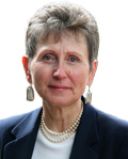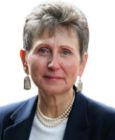
Friends
Learning With Our Friends: The Zone of Proximal Development
Understanding how and what we need to learn
Posted August 10, 2011
The "zone of proximal development" is a concept introduced by a Russian psychologist and child development specialist named Lev Vygotsky. While the concept is usually applied to children and traditional educational settings, the idea is very useful when thinking about recovery from a sudden injury or major illness, particularly when that injury or illness significantly disrupts our ability to function.

To understand the idea of the zone of proximal development, we start with examining what we can do independently, what we already know. This is the boundary of the zone. We then look for the areas in which we can learn new skills through the assistance of another person. These areas of new learning with assistance constitute the zone of proximal development. As we progress through this zone, we increase our ability to work independently by first mastering tasks with help and then learning to do those tasks without help.
The concept of the zone of proximal development illustrates that the way we learn to do things is in small steps, starting from where we are. We don't suddenly acquire a body of knowledge and the skills necessary to implement that knowledge. All of us routinely use the energy and skills of another person to help us learn and we have done so all our lives. We learned this way as children and we learn this way as adults. We are all "bridged" through our zones of proximal development.
As we mature, we grow to believe that we understand what we know and what we need to learn. But after a major injury or illness, knowing what we can and cannot do and what we need to learn are often not that obvious. Suddenly everything is changed. We discover that we took knowing how to do things for granted until our ability to do them was compromised.
We are, as a culture, an independent lot. We may become defensive when we are injured, not wanting to allow others to see what we believe is our increased dependence, not willing to look ourselves at the extent of our challenges. We may resist seeking help. Perhaps we still assume that we should know what to do. But we often don't. Sudden changes brought about by a major injury or illness, can require radical new learning. If we realize that the way everyone learns is by being bridged through the zone of proximal development, it may allow us to accept help more readily.
Well-trained therapists intimately understand our need to learn and can teach us many things, helping us recover the ability to do things again in the ways we have been accustomed to doing them or discover how to do things in new ways. Therapists are a type of expert and we may be less resitant to learning from an expert.
Unfortunately our opportunities for therapy are often limited. Depending on the extent of the injury, our insurance coverage or lack thereof, our access to talented therapists and our ability to focus while working with them, the therapy we do receive may not be sufficient to teach us all the things we need to learn.
Vygotsky shows us that we can be bridged through our zone of proximal development by either an expert or a competent peer, someone who knows the territory. Experts are great. We should learn as much from them as we can when we have the opportunity. But experts are not necessary to our ability to learn. Our peers are wonderful resources. We can turn to the people around us, to people with similar injuries or illnesses who have had more experience than we have in healing from and living with these challenges.

One of the advantages of working with our peers is that we are more likely to learn collaboratively with a peer than with someone we regard as an expert. Learning collaboratively is a very efficient. We can learn more deeply when, in the process, we also teach and encourage each other.
The process of healing and reacquiring old skills or learning new ones is a process of discovery. There is no "one right way" to do things. As we learn one thing we become aware of the next thing we need to learn. Regardless how much access to therapists we are able to obtain, we can also seek contact with our peers and be enriched by the creativity and experience of one another,
I am part of a group of friends who have challenges of various kinds, an informal peer group. Each one of my friends helps me learn strategies and techniques for improving my well-being. Rita understands that post injury I may become over-stimulated. She shows me techniques for slowing down and resting that teach me new ways to manage my stimulation levels.
Lynn works standing up and has introduced me to the tools of the standing office she has just constructed, helping me think through adapting my own environment to my needs. Carol is teaching me the value of increased social engagement and how this supports brain function. Linda shares skills that assist me in focusing on my meditation and the gift of self-reflection in the healing journey.
These friends of mine enter my proximal zone with me and bridge me into greater independence. If I resisted their help, fearing being viewed as less than able, I would not learn what they have to teach me. Then I would be less able indeed.



